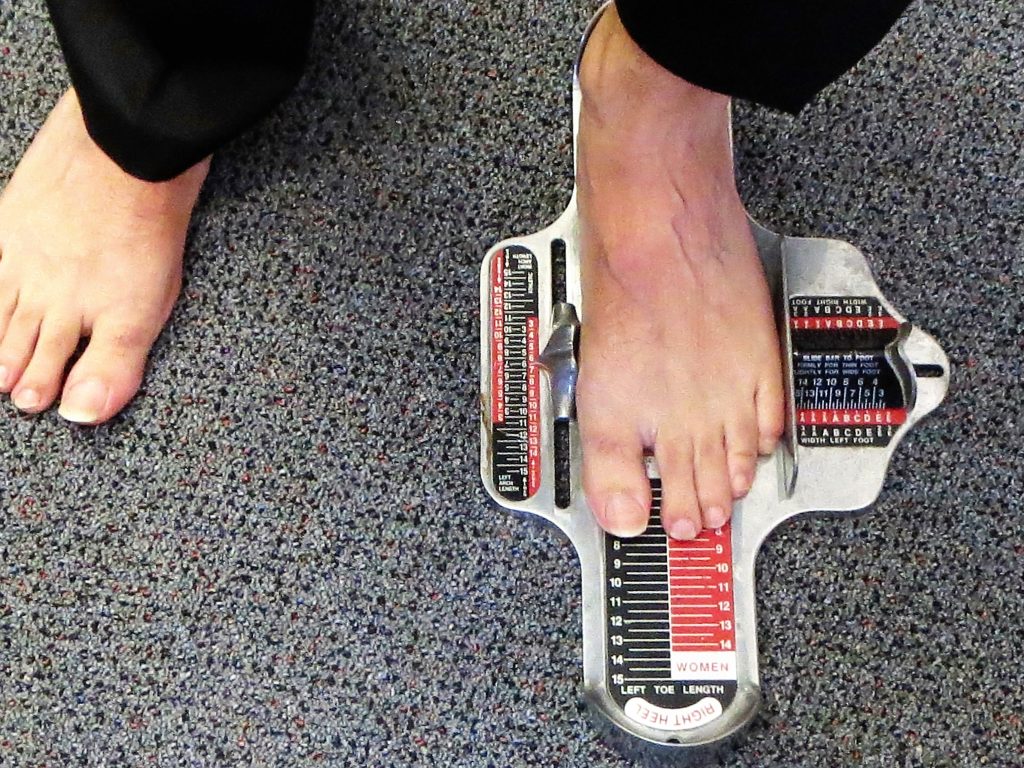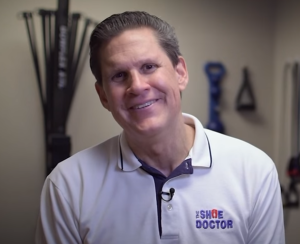Seek medical attention if you are unsure of the cause of your symptoms or if you do not know the specific treatment recommendations for your condition.
It’s nearly impossible to diagnose yourself if you’ve had heel pain. There are numerous conditions with symptoms that are very similar. So the best thing you can do is seek medical advice and consultation from a foot and ankle specialist in Cary or another location convenient for you.
Here are some clear indicators that you should see a doctor:
- Inability to walk on the affected side comfortably
- Heel pain that occurs during the night or while resting Heel pain that lasts more than a few days
- Back of the foot swelling or discoloration
- Infection symptoms include fever, redness, and warmth.
- Any other strange symptoms?
What are the risk factors for heel pain?
Anything that places a lot of strain and pressure on your foot can cause heel pain. The way you walk (foot mechanics) and the shape of your foot (foot structure) are also factors.
You may be more prone to heel pain if you:
- Are you overweight? (have obesity).
- Have arthritis in your feet and ankles, flat feet, or high foot arches.
- In sports or for exercise, you may run or jump a lot.
- Spend a significant amount of time standing, particularly on concrete floors.
- Wear shoes that are ill-fitting and/or lack arch support and/or cushion.
How can you prevent heel pain?
All cases of heel pain may not be preventable, but there are some simple steps you can take to prevent heel injuries and prevent pain:
- Wear shoes that fit properly and have a secure fastening, such as laces.
- Shoes with shock-absorbing soles and supportive heels are ideal.
- Any shoes with worn heels should be repaired or discarded.
- When exercising or participating in sports, always warm up and cool down with plenty of slow, sustained stretches.
- Your podiatrist will show you how to tape or strap your feet if necessary to help support the muscles and ligaments.
- Professionally fitted shoe inserts (orthoses) by your podiatrist can help support your feet in the long run.
When You Can’t Sleep Because of Nighttime Heel Pain, Try These 3 Tips:
- Keep a Ball on Your Nightstand
In the middle of the night, a quick massage with items you probably already have at home can provide effective, simple pain relief. On your nightstand, keep a tennis ball, golf ball, (or a washable Foot Massage Ball). If Plantar Fasciitis wakes you up in the middle of the night, simply swing your leg over the edge of the bed and roll the ball along the floor from your heel to the ball of your foot, along the arch. Increase blood flow, disrupt pain signals in the nerves, and break up adhesions and scar tissue along the plantar fascia with this gentle massage. Maintain the massage for at least sixty seconds.
- Try Ice Slippers
For temporary pain relief, icing is a tried and true method. You’ll be wide awake by the time you find a baggie, fill it with ice, and place it in the right spot for 20 minutes. And the last thing you need is pain relief that makes sleeping even more difficult. Fortunately, an inexpensive and innovative product can help: Ice Therapy Slippers are ice packs in the shape of a foot that can be strapped to the bottom of your foot. There’ll be no mess, no fuss, and you won’t have to worry about waking up in a puddle!
- Sleep with a Night Splint or Sock Splint
If you find yourself waking up with night pain from Plantar Fasciitis regularly, it may be possible to avoid the problem completely by wearing a sock or foot-splint while you sleep. Both products will hold your feet in gentle stretch all night long and keep them out of tightness that can come along with damaged arches. Choose one that is durable enough for any situation, lightweight so as not disrupt your slumber (or at least make it less worrisome), and breathable if need be!
Remember, The 3 Arches of Your Feet Still Need Support!
Maybe you have already felt the first symptoms of balance disorders or you want to prevent them from appearing in the first place. Consider getting a foot orthotic device or simply take care of your feet. Start by washing them thoroughly with a gentle soap whenever you take a shower. Being a very complex support system, your feet are your first line of defense against balance-related issues, since their arches provide you with the stability you need in your daily life. It’s time to put your foot down and push back against balance issues. With both feet on the ground, dedicate yourself to keeping them comfortable and healthy. Give us a call and we will scan your feet to make you custom orthotic inserts.
The Shoe Doctor has specialized in providing custom orthotics for 20 years. The right orthotic insoles can greatly reduce foot, knee and hip pain while increasing performance and comfort. Russell at The Shoe Doctor will help educate and assist you in finding the perfect solution for your particular situation. We will create a 3D map of your feet and make custom orthotics for your hiking boots, everyday shoes, and everything else in between. These orthotics, along with our expert advice, will get you using orthotics like a pro, and have you performing at the peak of your abilities in no time! If you are in the San Francisco Bay Area, give The Shoe Doctor a call to get the best custom orthotics in the area! We are here to assist you, schedule your free consultation here!


